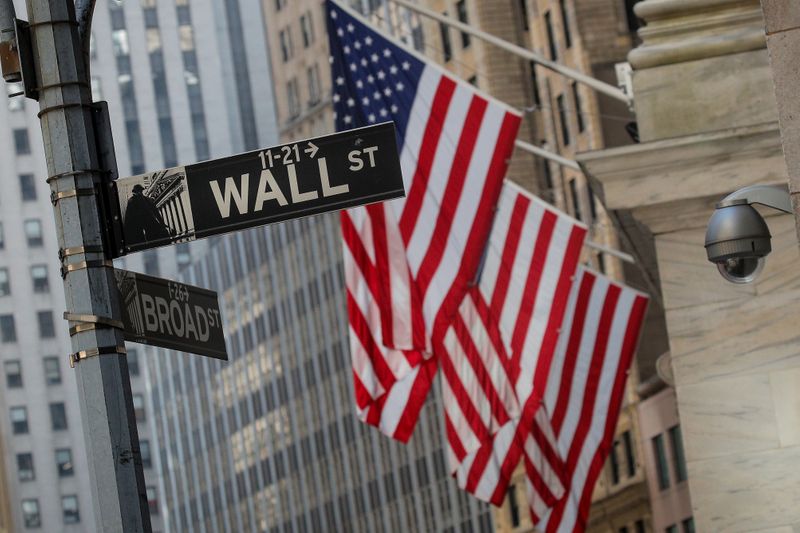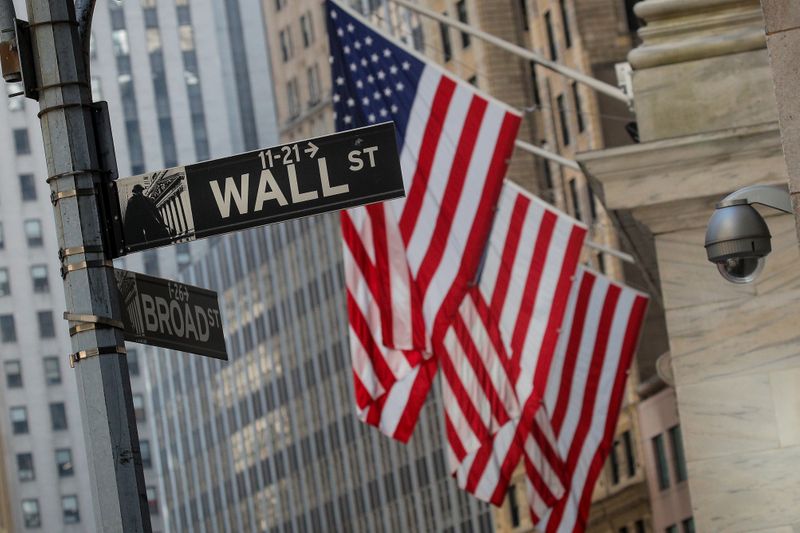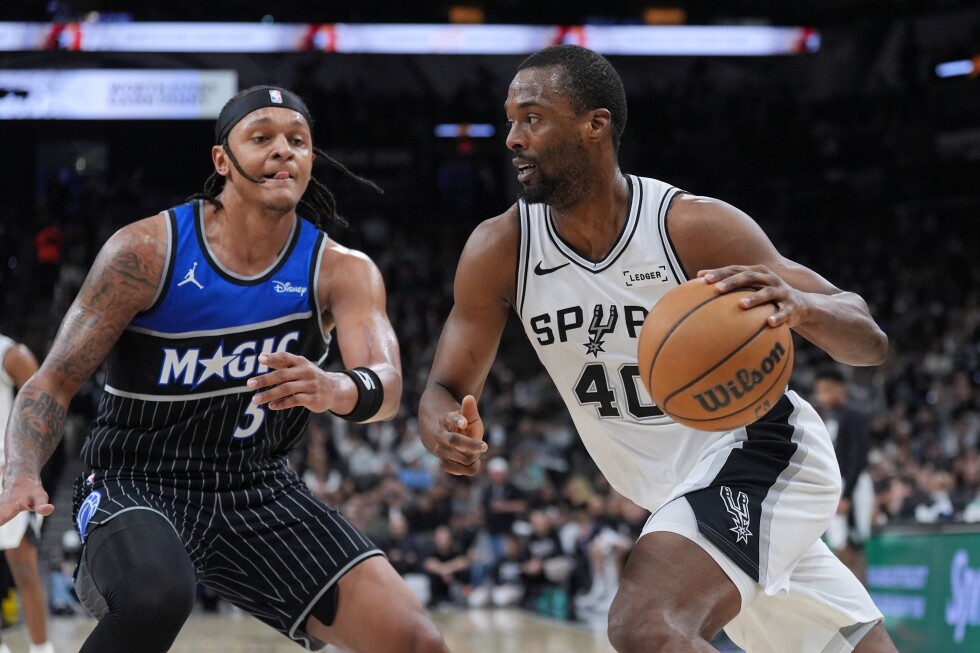 © Reuters
© Reuters
Investing.com — Here is your Pro Recap of the top takeaways from Wall Street analysts for the past week: upgrades for MediaAlpha and Constellation Energy and a downgrade for Roku.
InvestingPro subscribers always get first dibs on market-moving rating changes.
MediaAlpha
What happened? On Monday, BMO Capital upgraded Mediaalpha (NYSE:) to Outperform with a $28 price target.
What’s the full story? BMO Capital foresees a robust surge in Transaction Value (TV)-related revenue growth from 2024 to 2025. Specifically, they anticipate auto insurers, notably Progressive, to exceed sell-side expectations by intensifying their advertising-for-growth spending in ’24.
BMO Capital’s valuation multiple of approximately 25.6x on 2025 estimated adjusted EBITDA surpasses the historical average of around 21x for MAX. This divergence is driven by their projection of substantial upward revenue revisions spanning ’24 and ’25. However, BMO Capital acknowledges that MediaAlpha’s valuation multiple may eventually revert to the mean in subsequent years as the initial advertising wave naturally decelerates, considering the cyclical nature of auto insurance profits.
Outperform at BMO means “Forecast to outperform the analyst’s coverage universe on a total return basis.”
How did the stock react? MediaAlpha traded up on the premarket headlines from $20.02 to $20.79, a gain of 4%. MediaAlpha opened the regular session at $20.95 and closed at $21.53, a gain of 7.54%.
Roku Inc.
What happened? On Tuesday, Wells Fargo downgraded Roku (NASDAQ:) to Underweight with a $51 price target.
What’s the full story? Wells Fargo believes that Walmart (NYSE:) accounts for approximately one-third of Roku’s device sales and net additions. However, the retail giant is set to acquire Vizio for its SmartCast operating system (O/S), which is likely to pressure net additions by 2025-26. In addition, Walmart is likely to transition its own Connected TV (CTV) from the Roku O/S to SmartCast. This major shift in the competitive landscape will necessitate a repositioning by Roku according to Wells Fargo comments.
The bank also notes that Roku and Walmart collaborate on shoppable ads, with Walmart likely to pivot Walmart Connect towards the SmartCast installed base. Roku’s three largest channel partners, as per their 10-K, are Walmart, Best Buy (NYSE:), and Amazon (NASDAQ:). Walmart now has a CTV O/S, while Best Buy is not a media/ad company.
The analysts suggest that Amazon could potentially have interest, but they believe it already has the necessary assets between Prime Video for content/ads, FireTV O/S, and a device supply chain. This leaves Roku to a fundamental valuation, and Wells Fargo believes the story needs to improve for investors to justify a substantial long-term premium to the Walmart/Vizio deal.
Underweight at Wells Fargo means “Total return on stock expected to lag the Overweight- and Equal Weight-rated stocks within the analyst’s coverage universe over the next 12 months.”
How did the stock react? Roku traded higher around 4:35am as professional scalpers executed their usual premarket schemes to take advantage of different order routing rules. Around 5:00am the downgrade circulated and shares fell from $64.79 to $62.01, a decline of around 3.70%. Roku opened the regular session at $62.82 and closed at $6383, a decline of 0.81%.
Constellation Energy
What happened? On Wednesday, Keybanc upgraded Constellation Energy (NASDAQ:) to Overweight with a $190 price target.
What’s the full story? Keybanc’s upgrade follows CEG’s 4Q23 results and discussion. The analysts note that Constellation Energy has crystallized its growth strategy, which is underpinned by the existing nuclear Production Tax Credits and long-term trends in the U.S. power markets. These factors, they believe, are durable post elections.
Constellation Energy expects to grow earnings at “at least” a 10% rate through 2028. This growth rate would squarely position it as a premium infrastructure company in Keybanc’s coverage. The analysts’ updated estimates reflect this newly quantified earnings upside. Keybanc’s price target of $190 reflects Constellation Energy’s premium status among peers.
Overweight at Keybanc means “We expect the stock to outperform the analyst’s coverage sector over the coming 6-12 months.”
How did the stock react? Constellation Energy opened the regular session at $158.48 and closed at $170.76, a gain of 9.8% from Tuesday’s regular session close.
Bitdeer Technologies
What happened? On Thursday, Roth Capital initiated Bitdeer Technologies Group (NASDAQ:) at Buy with a $14 price target.
What’s the full story? None of this call went right for Roth. The brokerage highlighted the fact that Bitdeer is trading at a significant discount of approximately 61%, with an enterprise value of around $18 million per exahash per second (EH/s) for the year 2025, compared to its industry counterparts. I should add that Exahash generally means every second a collection of mining rigs is making one quintillion hash computations in total. The undervaluation is attributed to the relative novelty of Bitdeer’s narrative and the excess of dividend shares, estimated between 10 to 20 million, held by Bitmain investors (Crunch Base details on Bitmain here).
As Bitdeer shifts focus from hosted to self-mining operations and activates new mining sites, coupled with the anticipated reduction in share overhang, Roth anticipates a substantial appreciation in its valuation multiples.
The analysts’ price target of $14 is derived from an estimated $37.5 million per calendar year 2025 EH/s, based on an expected hash rate of approximately 38 EH/s, of which 27 EH/s are from self-mining activities, representing a 20% discount relative to its peers.
Buy at Roth means “A rating, which at the time it is instituted and or reiterated, that indicates an expectation of a total return of at least 10% over the next 12 months.”
How did the stock react? Bitdeer was clubbed on the regular session open dropping from $7.60 to $6.60. Shares remained in the lower 5-10% range on the day and closed down at $6.61, a drop of 9.8%.
Ashland Inc.
What happened? On Friday, Wolfe initiated Ashland (NYSE:) at Outperform with a $108 price target.
What’s the full story? Wolfe analysts suggest that the market’s frustration with Ashland’s destocking issues is beginning to ease. Previously perceived as an outlier, Ashland’s situation is now recognized as a common industry challenge. Wolfe expects Ashland to outperform its peers soon, thanks to new product developments and continued innovation.
In the pharmaceutical sector, Ashland’s achievements, including pricing power, market share gains, and organic volume growth, have been largely ignored amidst distractions in other segments. As a leading supplier of excipients for oral solid dosage forms, which have seen a 13% increase over five years, Ashland is poised to capitalize on its market position. The company plans to enhance its top-line growth by leveraging its flagship products, Klucel and Benecel, which are specialized binders for tablet formulation.
Additionally, Ashland is nearing the completion of a multi-year restructuring effort, which includes divesting from the nutraceuticals business and repurposing its cellulosic product lines, aiming to streamline its portfolio and focus on core competencies.
Outperform at Wolfe means “The security is projected to outperform analyst’s industry coverage universe over the next 12 months.”
How did the stock react? Ashland opened the regular session at $93.64 and closed at $95.42, a gain of 2.52%.















